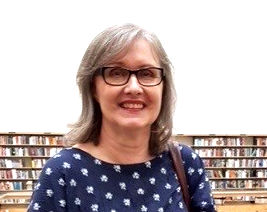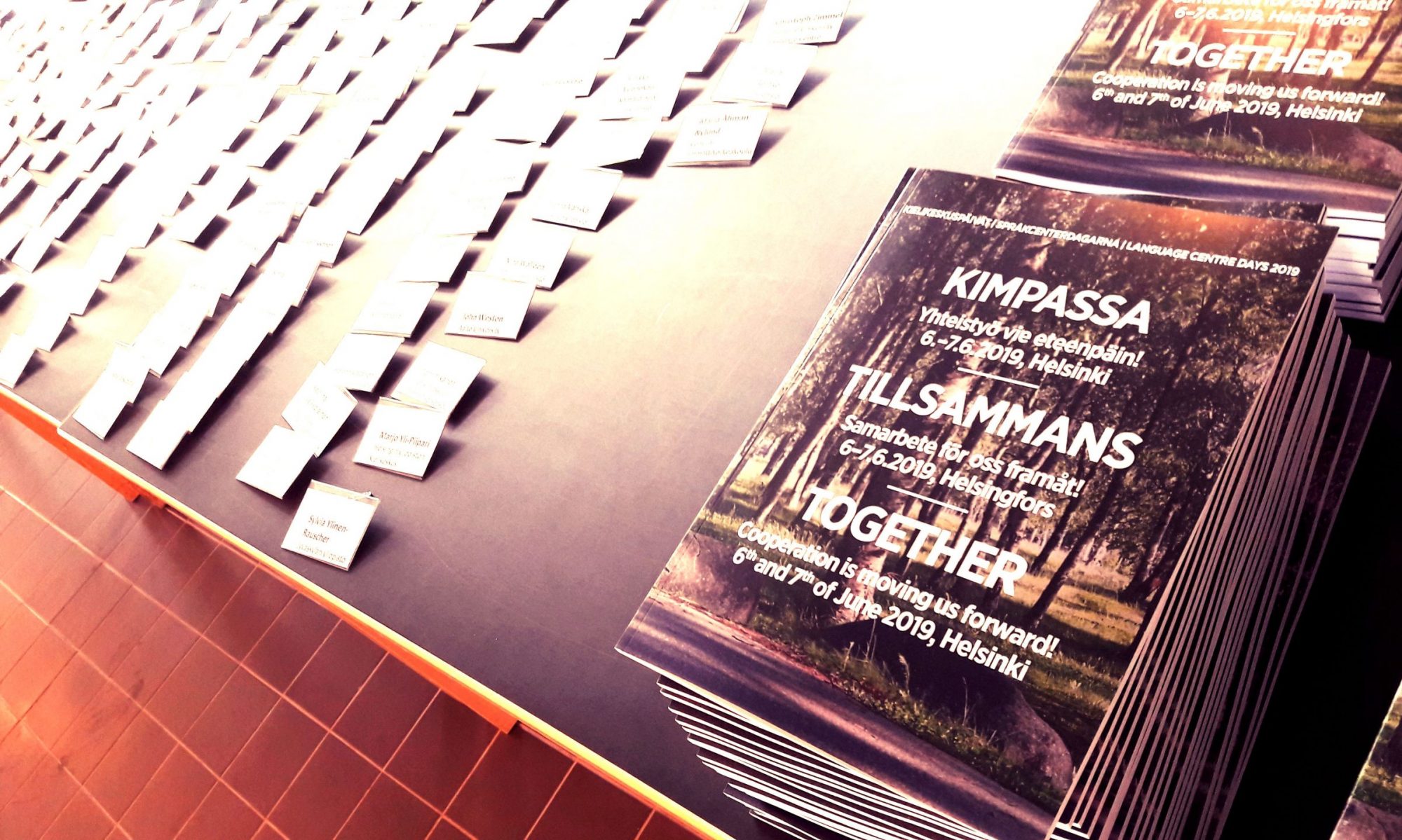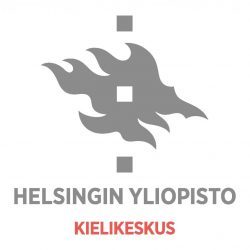
The year 2019 was a busy one at the University of Helsinki Language Centre, with numerous changes and challenges testing the work community’s flexibility and ability to anticipate and adapt. Several administrative staff members of the Language Centre and University Services changed jobs while we undertook a wide range of development activities that will affect our operations in the years ahead.
The new members of the Committee for the Development of Teaching (2019–2021) met at the beginning of the year and immediately started to consult the language groups so as to draw up a new plan for the development of teaching and specify related focus areas at the Language Centre. We began to work together on the Language Centre’s new curriculum (2020–2023) and the teaching programme for the next academic year (2020–2021). The most significant and inspiring activities included in the curriculum design process were the discussions in which we reflected on our teaching based on the Language Centre’s basic mission, but also challenged the current situation by asking ourselves: why is our teaching provision what it is? How should it be adjusted? What communication and language skills do students need in their studies, and what Language Centre studies will make their degrees competitive in the future job market? How will our University’s new strategic plan affect our teaching? What about the new curricula of degree programmes? How will we resolve the problem of scarce financial resources that may even be further depleted? What is the future of contact teaching, blended learning and online teaching? Our joint efforts to answer these and many other curriculum-related questions provided us with a solid foundation for our future work.
In 2019 we also finalised our implementation plan for the University’s previous strategy period (2017–2020) and related development measures, and took on the development tasks specified for the first years of the new strategy period (2021–2030). In addition, we revived the activities of the Cooperative Committee and began to put together a process chart of the Language Centre’s key operations.
As for the University of Helsinki, it established a working group on the reform of continuous learning and the Language Centre’s structural development. The group was tasked with exploring the Language Centre’s operations and organisation. A previous, similar group had concluded its work just two years earlier, and the establishment of a new group so soon after naturally raised concerns. As the group will not publish its final report until May 2020, we have to work and look to the future trusting that the excellent feedback from students and faculties we have received thus far as well as the satisfaction of the customers using our services will protect the Language Centre from major upheavals.
The most moving occasion of the year was the farewell celebration at the beginning of May for Director Ulla-Kristiina Tuomi, who retired after 12 years at the helm of the Language Centre. The loving and collegial atmosphere spoke volumes of her leadership and the work community into which the Language Centre had developed during her term.
The annual round of consultations with the University faculties again played an important role in guiding our teaching and services. At these meetings, faculties and degree programmes can provide us with feedback and requests and, together, we can make plans for the future. At the same time, we can present a given current, central aspect of the Language Centre’s operations in detail. The agenda of the 2019 meetings included the provision of language support relating to bilingual degrees (Finnish and Swedish) as well as the presentation of our teaching provision and, on a related note, of communication and language skills as career skills. In fact, we proposed the inclusion of Language Centre studies in the career education required of degree students. The enthusiastic and even unexpected discussion that ensued served as a reminder of how important it is for us to continue talking about the Language Centre on all possible fora: our wide range of high-quality teaching and services that are important to students, staff and units alike is not necessarily as widely known as we would wish.
The key topic of the customary meeting with the rector in June 2019 was, alongside financial challenges, the challenge of digitalisation. I was pleased to have the opportunity to explain to the rector that the Language Centre has diversified its learning environments, utilises digitalisation widely in teaching and learning, and that we organise regular training and workshops in digital teaching and are also involved in three major national projects promoting the digitalisation of language teaching (DIGIJOUJOU, KiVAKO and FINELC 2digi). At the time of writing this, we already know that the praise I heaped on the digital teaching skills of Language Centre staff was true. We have been very successful in responding to the real digitalisation challenge of 2020!
The University’s workplace wellbeing survey in autumn 2019 also brought good news for the Language Centre. We were again one of the University’s top scorers! Our average results in all areas of the survey were high, especially in areas that we at the Language Centre can influence: inclusivity and collegiality, the content of our work and professional skills, and the work of immediate supervisors.
In all, despite the changes and challenges, 2019 proved that the Language Centre is a resilient professional community in which we work and further develop our work in a collaborative manner, supporting each other. Together we have the skills, determination and tenacity required.
To conclude, I would like to extend my warmest thanks to all Language Centre staff for their kind support to me in my new role as director. Thank you also to Leena Evesti, the new head of Language Services, Sinikka Karjalainen, the new deputy director, and Katariina Uitto, the new supervisor of the Finnish as a Native and Second Language Unit, all of whom took on their demanding roles this year.
Seija Korhonen
Director of the Language Centre

